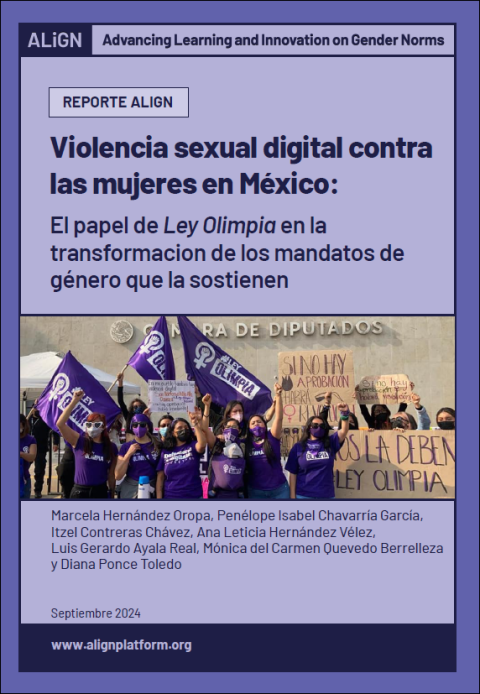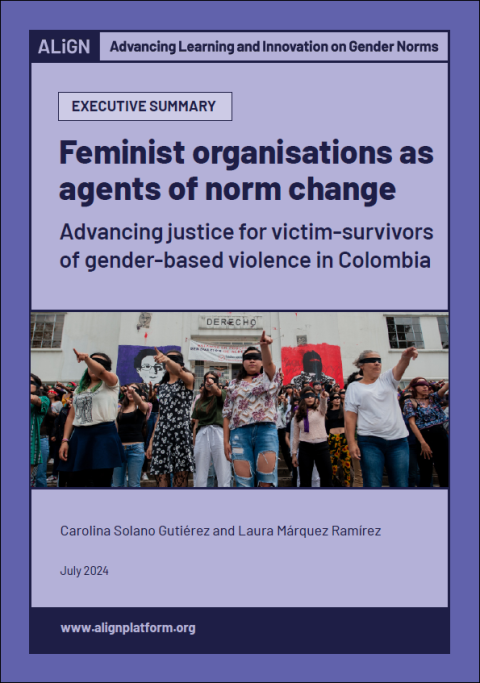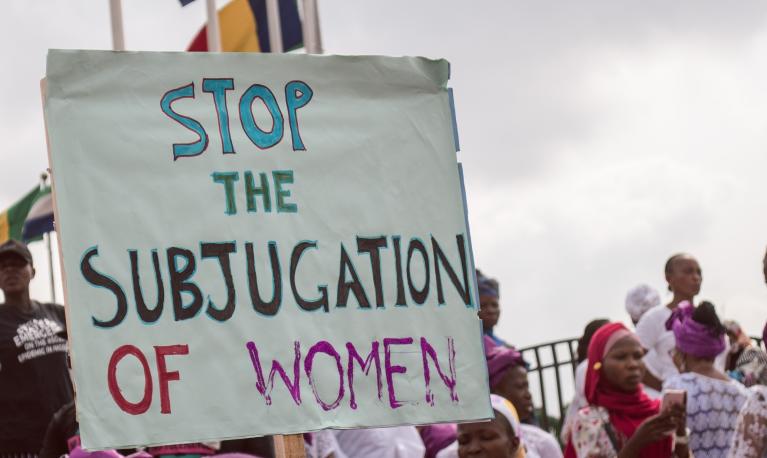- Report
- 30 Septiembre 2024
Digital sexual violence against women in Mexico: role of the Olimpia Law in transforming underlying gender norms
- Author: Marcela Hernández Oropa, Penélope Isabel Chavarría García, Itzel Contreras Chávez, Ana Leticia Hernández Vélez, Luis Gerardo Ayala Real, Mónica del Carmen Quevedo Berrelleza, Diana Ponce Toledo
- Published by: ALIGN, Frente Nacional para la Sororidad

Digital gender-based violence (GBV) is a growing concern as our lives become increasingly intertwined with digital technologies. This form of GBV, perpetrated or amplified through digital spaces and technologies, has severe impacts on women’s rights and well-being.
In Mexico, the Frente Nacional para la Sororidad made significant strides with the enactment of the Olimpia Law (Ley Olimpia, 2018-2022), a ground-breaking law that recognizes digital GBV and provides a framework for prevention, response, and elimination.
This ALIGN-funded study provides emerging evidence on the impact of the Frente Nacional para la Sororidad and the Olimpia law on the gender norms that underpin digital sexual violence – a specific form of digital GBV that targets a person's sexuality through technology. It examines how the movement and legal reform have influenced state institutions, civil society, and traditional media and social media companies.
Key messages:
- The movement and reform have begun to question and dismantle the gender norms that sustain digital sexual violence in Mexico, both in state institutions and civil society. This emphasises the importance of advancing legal changes that recognise and criminalise GBV and of accompanying these efforts with a broader range of actions.
- Despite progress, there is resistance to these changes within both state institutions and civil society. Re-victimising beliefs and practices persist, hindering the reform’s impact by discouraging reporting of digital sexual violence.
- The movement and reform have had minimal influence on how media and social media companies moderate content and handle cases of digital sexual violence. This is partly due to the lack of national and international regulations that clearly outline these companies' legal responsibilities.
- Countries / Regions:
- Mexico
Related resources
Report
4 Septiembre 2024
Published by: ALIGN, SISMA Mujer

Report
5 Agosto 2024
Published by: ALIGN
